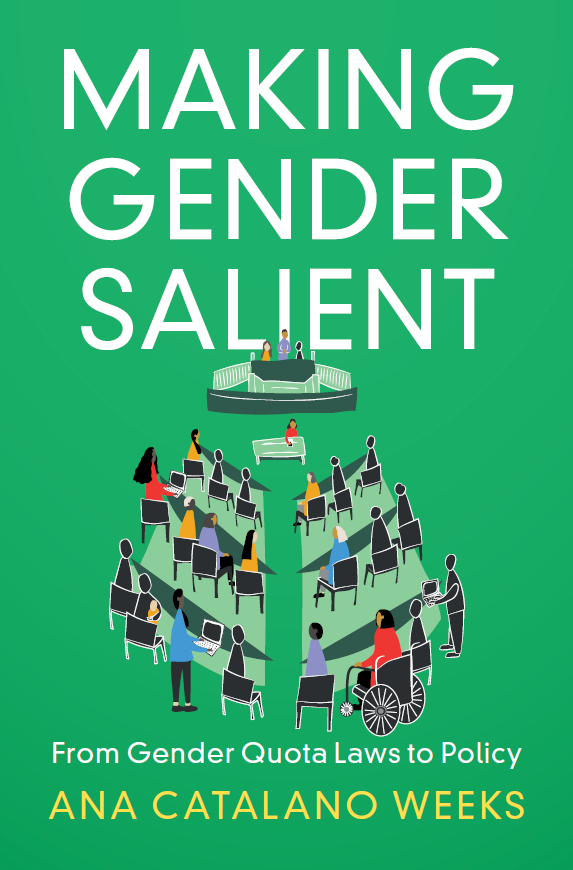
June 2022, Cambridge University Press
Do gender quota laws – policies that mandate women's inclusion on parties' candidate slates – affect policy outcomes? Making Gender Salient tackles this crucial question by offering a new theory to understand when and how gender quota laws impact policy. Drawing on cross-national data from high-income democracies and a mixed-methods research design, the book argues that quotas lead to policy change for issues characterized by a gender gap in preferences, especially if these issues deviate from the usual left/right party policy divide. The book focuses on one such issue, work-family policies, and finds that quotas shift work-family policies in the direction of gender equality. Substantive chapters show that quotas make gender more salient by giving women louder voices within parties, providing access to powerful ministerial roles, and encouraging male party leaders to compete on previously marginalized issues. The book concludes that quotas are one important way of facilitating congruence between women's policy preferences and actual policy outcomes.
Want to know more about the book? You can read a blog, watch a video of the book launch, or listen to a podcast.
Endorsements
“This must-read monograph masterfully tackles a central question for contemporary gender and politics scholars and policy activists: do electoral gender quotas affect policy outcomes? With an impressive mix of quantitative and qualitative evidence, Ana Catalano Weeks convincingly outlines when quotas will, and will not, lead to policy change and makes important contributions to the research on gender and politics, European politics, and comparative public policy.” -- Diana Z. O'Brien, Albert Thomas Associate Professor of Political Science, Rice University
“Despite the rapid and global adoption of gender quotas, we know very little about their effects for substantive representation. This book takes up this vital question, expertly weaving together cross-national quantitative and qualitative evidence, and offering robust evidence that quotas are consequential for the policymaking process across many democracies today. The novel and transformative theoretical framework significantly advances work on comparative party politics and gender politics by widening the analytical lens to consider the landscape of party competition for assessing the links between gender quotas and policy changes.” -- Miki Kittilson, Associate Dean for Faculty Success, College of Global Futures, School of Politics and Global Studies, Arizona State University
“We now know a good deal about the effectiveness of quota laws, but their impact on policy is less well understood. Making Gender Salient addresses this significant lacuna in our knowledge using public opinion data to gauge women’s interests and explores the extent to which they are better represented when gender quotas for national legislatures are in place. A combination of state-of-the-art comparative methods and rigorous contextual insight demonstrates the crucial role quotas can play in politically empowering women. It is an essential read for scholars of political representation and gender and politics.” -- Rosie Campbell, Professor and Director of the Global Institute for Women’s Leadership and Professor of Politics, King’s College London
Reviews

